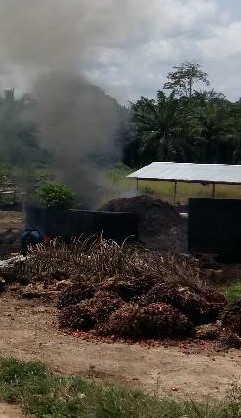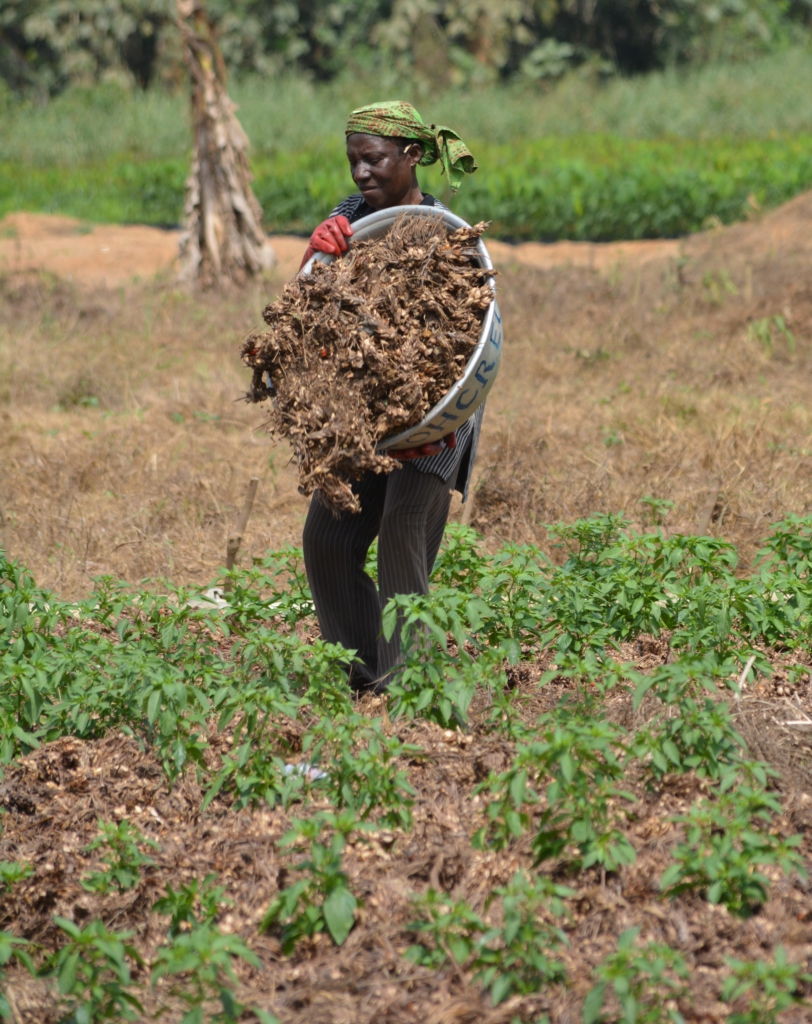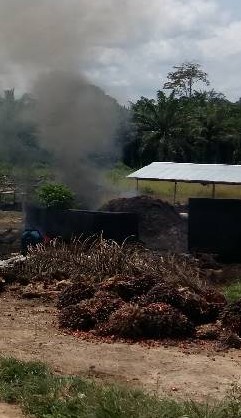A new research by the University of Ghana has shown that using oil palm waste on vegetable farms could double yield and at the same time help fight climate change.
The increased yield will increase farmers’ income and create thousands of jobs in rural areas, thereby alleviating poverty.
“Poverty, malnutrition, and unemployment are very high in rural Ghana. The oil palm waste– the material left after taking out palm fruits from bunches—is right at their doorstep in large quantities, and our research shows the waste could give these people hope for a better future,” says Dr. Eric Oppong Danso, who’s leading the research at the University of Ghana’s Forest and Horticultural Crops Research Centre.
Huge amounts of oil palm waste are produced in oil palm plantations in Ghana. Every day, around 300 tonnes of this waste is produced, and usually it is burned off, thereby worsening climate change. But instead of being burned off, the waste can be used as organic fertilizer on vegetable farms to increase yield and mitigate emissions from uncontrolled burning.

“The vegetable market in Ghana is growing at over 10% per year, with the potential to employ thousands of rural farmers and help alleviate poverty. However, declining soil fertility will make it increasingly difficult to realize this potential without replenishing soil nutrients” Dr. Oppong Danso, explained.
The researchers found that by throwing just 30 kg of the oil palm waste on eggplant fields, they could increase the yield from 60 tonnes per hectare to 140 tonnes per hectare. This was shown at an experiment conducted in the Okumaning village of eastern Ghana.
“This means that farmers can have a better income and livelihood, and at the same time, more jobs will be created right from the farm, through the market, to the dining table," Dr. Oppong Danso emphasized.

Vegetables have higher nutritional benefits compared with what is present in cassava, maize, and other everyday foods consumed in Ghana, but yields are very low due to low soil quality. By mobilizing Ghana’s largely unused oil palm waste, vegetable yields could be doubled and thereby help fight malnutrition and hunger in Ghana.
Latest Stories
-
Joy FM Prayer Summit for Peace ends in electrifying worship and prayer
2 hours -
The Conscience of Leadership: A call to President Akufo-Addo on Ghana’s environmental devastation
3 hours -
Ghanaian youth unaware of their right to hold politicians accountable – Youth Bridge Foundation
4 hours -
Judge delays Trump sentencing for a third time
4 hours -
2024 WAFCON: Ghana drawn against defending champions South Africa in Group C
5 hours -
Photos from DW-JoyNews street debate on ‘galamsey’
5 hours -
Mimmy Yeboah: Blending heritage with global sophistication, confidence redefined through couture
6 hours -
100 Most Influential People Awards 2024: Brain Hill International School’s Director Mary Anane Awuku honoured
6 hours -
Akufo-Addo commissions 97-km Tema-Mpakadan railway line
6 hours -
Majority requests recall of Parliament
6 hours -
Kanzlsperger and Professor Quartey support WAFA with medical Donation
6 hours -
Gideon Boako donates 10 industrial sewing machines to Yamfo Technical Institute
7 hours -
‘Golden Boy’ Abdul Karim Razak honored at WAFU-B general assembly
7 hours -
Buipewura Jinapor secures Vice Presidential position in National House of Chiefs with record votes
7 hours -
2024 election: I want results to come out like ‘milk and honey’ – Toobu
7 hours

